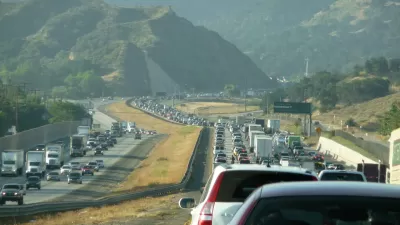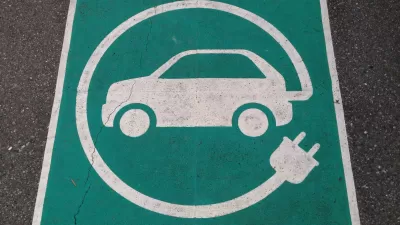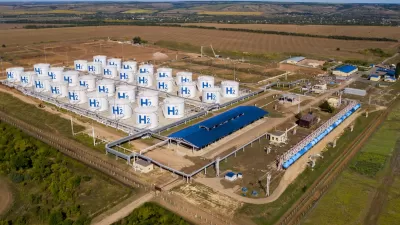The U.S. transportation sector is on track to reduce emissions by 19 percent by the end of the decade, but a new report indicates the public and private sectors could implement policies that would cut emissions by as much as 34 percent.

An analysis from America Is All In states that the U.S. could cut emissions in the transportation sector by up to 34 percent by 2030 if federal, state, and local governments, as well as the private sector, ramp up their current efforts, which are currently on track to reduce emissions by 19 percent by the end of the decade. Dan Zukowski describes the report, whose author notes that “additional action could further reduce transport emissions, bringing the country closer to meeting President Joe Biden’s overall goal of a 50% to 52% reduction in U.S. carbon emissions by 2030.”
The report cites specific steps that can be taken at each level. The federal government should continue its electric vehicle tax credit and purpose increased fuel economy standards. Cities and states can boost their efforts to electrify municipal fleets, reduce vehicle use, and improve EV charging infrastructure. The private sector can “invest in research and development of alternative fuels” that can help decarbonize the electric grid.
“Separately on [April 21], the Federal Highway Administration announced a new program, part of the bipartisan infrastructure law, called the Carbon Reduction Program, making available $6.4 billion in formula funding for states and localities over five years.” The program will fund projects such as bus rapid transit, micromobility, bike infrastructure, and congestion pricing.
FULL STORY: US transportation sector could cut carbon emissions 34% by 2030: analysis

Planetizen Federal Action Tracker
A weekly monitor of how Trump’s orders and actions are impacting planners and planning in America.

San Francisco's School District Spent $105M To Build Affordable Housing for Teachers — And That's Just the Beginning
SFUSD joins a growing list of school districts using their land holdings to address housing affordability challenges faced by their own employees.

The Tiny, Adorable $7,000 Car Turning Japan Onto EVs
The single seat Mibot charges from a regular plug as quickly as an iPad, and is about half the price of an average EV.

Trump Approves Futuristic Automated Texas-Mexico Cargo Corridor
The project could remove tens of thousands of commercial trucks from roadways.

Austin's First Single Stair Apartment Building is Officially Underway
Eliminating the requirement for two staircases in multi-story residential buildings lets developers use smaller lots and more flexible designs to create denser housing.

Atlanta Bus System Redesign Will Nearly Triple Access
MARTA's Next Gen Bus Network will retool over 100 bus routes, expand frequent service.
Urban Design for Planners 1: Software Tools
This six-course series explores essential urban design concepts using open source software and equips planners with the tools they need to participate fully in the urban design process.
Planning for Universal Design
Learn the tools for implementing Universal Design in planning regulations.
Smith Gee Studio
City of Charlotte
City of Camden Redevelopment Agency
City of Astoria
Transportation Research & Education Center (TREC) at Portland State University
US High Speed Rail Association
City of Camden Redevelopment Agency
Municipality of Princeton (NJ)





























